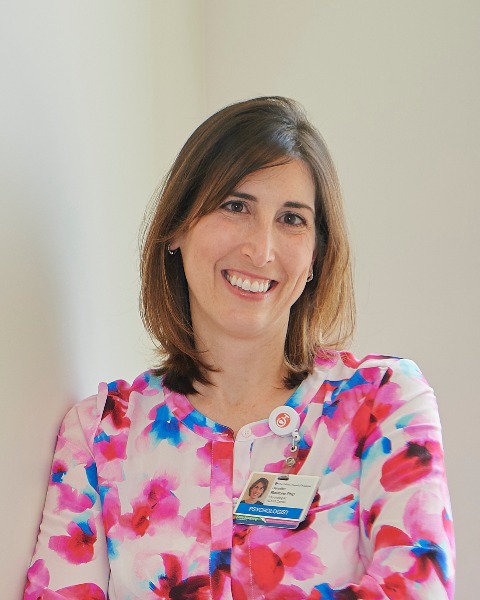Symposia
ADHD - Child
1 - (SYM 11) Engaging Families in Evidence-based Treatment for ADHD: Results from an RCT of the Bootcamp for ADHD Program
- JN
Jenelle D. Nissley-Tsiopinis, Ph.D. (she/her/hers)
Research and Clinical Psychologist
Children’s Hospital of Philadelphia
Philadephia, Pennsylvania - MF
Marilyn Featherston, MD (she/her/hers)
Developmental Pediatrician
Lurie Children's Hospital Of Chicago & Rush University Medical Center
Chicago, Illinois - SN
Sébastien Normand, PhD
Professor
Université du Québec en Outaouais & Hôpital Montfort
Gatineau, Quebec, Canada 
Jennifer A. Mautone, Ph.D. (she/her/hers)
Assistant Professor
Children’s Hospital of Philadelphia
Philadelphia, Pennsylvania- JF
Jason Fogler, PhD (he/him/his)
Assistant Professor
Boston Children's Hospital & Harvard University
Boston, Massachusetts - JG
Juliayael Gross, MS (she/her/hers)
Graduate Student
Lehigh University
Bethlehem, Pennsylvania - PF
Phylicia Fleming, PhD (she/her/hers)
Psychologist
Children's Hospital of Philadelphia
Philadelphia, Pennsylvania - CC
Courtney Cleminshaw-Mahan, MS (she/her/hers)
Graduate Student
Lehigh University
Bethlehem, Pennsylvania - KT
KatieT Tremont, MS (she/her/hers)
Research Coordinator
Children's Hospital of Philadelphia
Philadelphia, Pennsylvania - AJ
Abbas Jawad, PhD (he/him/his)
Associate Professor
Children's Hospital of Philadelphia & University of Pennsylvania
Philadelphia, Pennsylvania - TP
Thomas Power, Ph.D. (he/him/his)
Professor
Children’s Hospital of Philadelphia
Philadelphia, Pennsylvania
Speaker(s)
Co-author(s)
Objective: Attention-deficit/hyperactivity disorder (ADHD) contributes to impairments in academic, social, and family functioning that generate a high cost to families and society. Although evidence-based pharmacological and behavioral treatments (EBTs) have been identified to treat ADHD, caregivers often do not initiate and sustain these treatments. The purpose of this presentation is to investigate the impact of a novel, four-session engagement program (i.e., Bootcamp for Attention-Deficit/Hyperactivity Disorder; BC-ADHD) on family empowerment related to navigating systems of care, as well as acceptance, intent to use, and utilization of medication, psychosocial and school-based treatments for elementary school-aged children with ADHD.
Methods: Participants included 50 caregivers of children with ADHD (68% male; 92% non-Hispanic; 24% Black; 72% White) who were enrolled in a randomized clinical trial. In four cohorts of 10-16 families, caregivers were randomly assigned to BC-ADHD or a wait list group. Caregivers completed baseline measures of family empowerment, caregiver treatment preferences, intention to use and actual use of EBTs. Outcomes were assessed at post intervention and 6 weeks following treatment.
Results: Preliminary analyses related to medication indicated that BC-ADHD resulted in a significant increase in intent to use medication at post-treatment (t(39)=3.317, p=.002; Cohen’s d=1.19) and follow-up (t(39)=2.502, p=.017; Cohen’s d=0.88). The findings also indicated that caregivers in the BC-ADHD group expressed more concerns about the feasibility of using medication than those in the control group (t(39)=-2.183, p=.035; Cohen’s d=0.71). This presentation will also examine the effect of BC-ADHD on other outcomes, including family empowerment, intent to use and actual use of family and school behavioral interventions.
Conclusions: BC-ADHD appears to be a promising engagement program for improving family involvement in EBTs for ADHD. Although caregivers expressed more concerns about the feasibility of using medication, they also expressed greater intent to initiate medication treatment for their child’s ADHD, suggesting that as caregivers learn more about medication through BC-ADHD, they may be able to identify questions for discussion with clinicians. Future research is needed with longer follow-up timeframes and larger sample sizes to evaluate BC-ADHD’s impact on initiation of multimodal interventions for ADHD.

